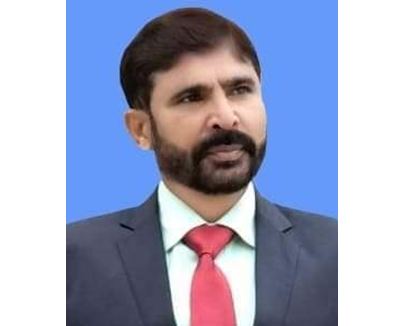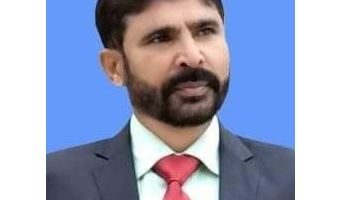EU’s Strategic Shift and Ukraine

Dr. Muhammad Akram Zaheer
The European Union (EU) member states have agreed to allocate an additional €5 billion ($5.4 billion) to the European Peace Facility (EPF) by the end of the year. This decision follows Brussels’ pledge of €6.1 billion since the beginning of 2022, highlighting the EU’s ongoing commitment to supporting peace and stability within and beyond its borders. The EPF serves as a crucial tool in the EU’s foreign policy, aimed at providing financial assistance to partner countries, supporting military and defense-related activities and addressing security challenges.
In 2023, the EPF’s momentum declined primarily due to the preference of EU member states to support Ukraine bilaterally rather than through the collective framework of the EPF. This shift occurred against the backdrop of Russia’s ongoing war in Ukraine, where many EU nations felt compelled to provide direct military,in addition, humanitarian aid to Kyiv. Bilateral support was seen as more expedient in meeting Ukraine’s urgent needs, thereby reducing the emphasis on the EPF. While the mechanism was intended to streamline EU efforts, the bilateral approach led to a disjointed and fragmented response, highlighting the limitations of the current EPF framework.Another significant challenge arose when Hungary imposed a veto on EPF funding. The decision came after Ukraine classified one of Hungary’s banks as an “international sponsor of war,” triggering a diplomatic dispute between Budapest and Kyiv. Although Hungary eventually rescinded the veto, the episode exposed the vulnerability of the EPF to political disruptions. It also illustrated how national interests could interfere with collective European actions, thereby questioning the robustness of the EPF as a reliable funding mechanism. These events, coupled with the varying levels of commitment among EU member states, underscored the need to reform the facility to better suit the geopolitical realities and demands, particularly in supporting Ukraine.
The challenges faced in 2023 have sparked renewed discussions about reforming the EPF to enhance its effectiveness, predictability and ability to respond swiftly to security needs. Key areas of reform include streamlining decision-making processes, ensuring equitable burden-sharing among member states and making the facility more adaptable to specific regional requirements, particularly in conflict zones like Ukraine. Proponents of reform argue that by addressing these structural issues, the EPF can better serve as a cohesive framework for collective European defense initiatives.The debate over reform has also gained traction due to the broader political landscape within the EU. With elections approaching, discussions on European defense and security have become increasingly prominent. Political leaders across the bloc are aware that issues surrounding defense funding and collective security arrangements will be central to electoral debates. For some member states, enhancing the EPF’s capabilities is seen as a step toward fostering greater European strategic autonomy, reducing dependency on external actors like the United States and reinforcing the EU’s role as a global security actor.
The debate over the future of the EPF is not occurring in isolation; it is also being influenced by developments across the Atlantic. The upcoming U.S. elections are a critical factor shaping the discourse on European defense. Historically, the EU has relied heavily on the U.S. for security through NATO, but recent geopolitical shifts have led to calls for Europe to assume a more independent defense posture. The uncertainty surrounding U.S. foreign policy post-elections, especially concerning support for Ukraine, has intensified discussions within Europe about the need for stronger, self-sufficient security mechanisms. If there is a shift in U.S. policy towards a more isolationist stance, it could necessitate a more robust and independent European defense strategy, thereby underscoring the importance of reforming the EPF.Moreover, the geopolitical environment, marked by increasing tensions with Russia and the need to secure the EU’s eastern borders, has elevated the urgency of having a predictable and reliable funding mechanism like the EPF. Enhancing the EPF would not only allow for a more coordinated response to crises but would also send a message of solidarity and commitment to member states and partners under threat.Despite the evident need for reform, political factors could delay or even derail the process. Differences in national priorities, economic constraints and divergent views on European strategic autonomy may hinder consensus. Countries such as Germany and France, which have been proponents of a stronger EU defense capability, may push for extensive reforms, while others may resist changes that could increase financial burdens or compromise national sovereignty. Additionally, political leaders will have to navigate these discussions carefully, especially as defense and security funding become critical issues in the upcoming electoral campaigns.Hungary’s actions in 2023 serve as a reminder of how individual member states can exercise veto power, thereby stalling collective initiatives. To address this, there is a need for discussions on decision-making mechanisms within the EPF that could prevent single states from obstructing vital security funding. A shift toward qualified majority voting for specific decisions could be one way to mitigate such risks, although this would require amendments to existing agreements and might be a contentious issue among member states.
Related News

The Tianjin Moment and the SCO
Dr. Muhammad Akram Zaheer When leaders of the Shanghai Cooperation Organisation gathered in Tianjin inRead More

Trump defies Israel on Iran strategy
Qamar Bashir Benjamin Netanyahu’s recent rush to Washington was not routine diplomacy. It was aRead More


Comments are Closed